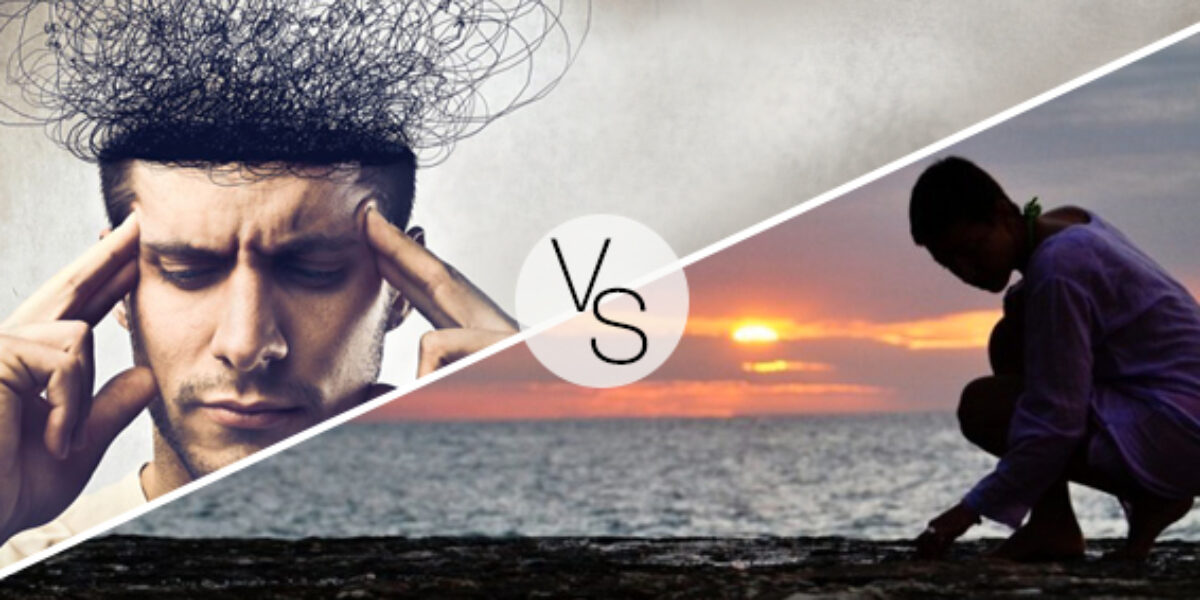As the year begins and winter strikes, I suggest that we think about the danger of unwittingly wasting our energy and instead try to find a way to use it productively.
The source of our energy
It is important to know that we have physical, as well as psychic, energy: our brain, which is an integral part of our body, burns energy through reasoning, thinking, but also, often subconsciously, through brooding.
Difference between brooding and thinking.
The definition of “brooding” proposed by Christophe André is: “focusing, repeatedly and in a circular, sterile manner, on the causes, meaning and consequences of our problems, our circumstances, our state of mind”. (1)
Sometimes we are so completely overwhelmed by brooding that we don’t even realize that we are entangled in a negative spiral. Yet we feel tired, we have little energy and we don’t sleep well.
Thinking, as opposed to brooding, enables us to find new ideas and solutions to problems; it is a source of energy and makes us want to share our views with others.
Step 1: realizing that we are brooding
To distinguish brooding from thinking, below is a chart that I found in Christophe André’s book (2).
Being aware that we are in a brooding phase is the first step towards overcoming it.
| Brooding | Thinking |
| We tend to look for faults, mistakes, culprits… We focus on “why?” |
We look for solutions…what are we going to do now? |
| In general, we tend to magnify the problem | We tend to keep a sense of proportion, put the problem in perspective, without going overboard |
| We tend to judge ourselves and others | We try to understand |
| We oversimplify. For example “everything stems from a single cause” | We are aware of the complexity of the problem (but we don’t let it overwhelm us): we understand that the problem has several causes |
| We prefer to turn towards the past | We prefer to turn towards the present and the future |
| We don’t have a precise goal (hence we get bogged down) | Our goal is either solving the problem or opting out |
| We tend to approach the situations in a global and general manner, thus engendering a feeling of powerlessness | Si affronta la situazione per tappe e un passo dopo l’altro. |
Step 2: freeing our mind by sharing worries with others
Sharing our worries with people who love us is another fundamental step towards freeing ourselves from the burden of brooding. If we share our worries, it is easier for us to step back.
Sharing requires three essential conditions:
1/finding people who really love you and with whom you feel comfortable;
2/they should know how to listen without necessarily giving advice;
3/ they should know how to distance themselves from your brooding, otherwise you will both be trapped in the whirlwind!
Step 3: our circle of influence
Thoroughly analyzing what in the present situation really lies within our circle of influence: What can we act on? What should we avoid wasting our energy on, since our influence is nil?
Sometimes we must forget about our super-power dream and face reality: finally this exercise is beneficial because it helps us to find our scope, to make us feel more confident and to direct our energy constructively.
I realize that at some points in our lives, we “fall prey” to brooding and that getting rid of it is easier said than done, especially at night when we wake up with a start. I invite you to follow these simple steps which will help you regain your energy as well as an effective solution to your problems.
(1). “Les états d’âme” (“Feelings and moods”),Christophe André, editions Odiles Jacob. Since this book is not yet translated into English, I recommend you to read other Christophe André’s books. Find them on Amazon.com
(2). Ibidem



